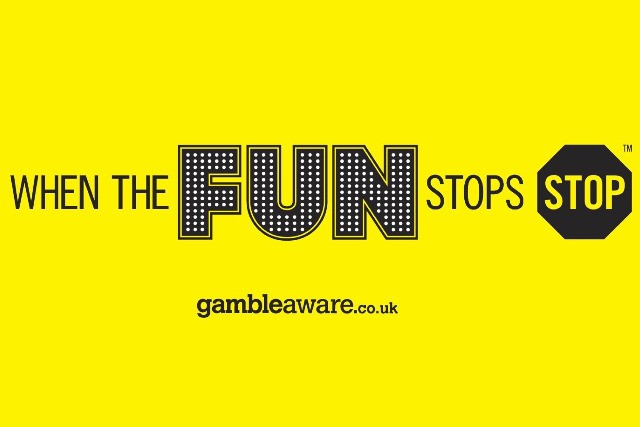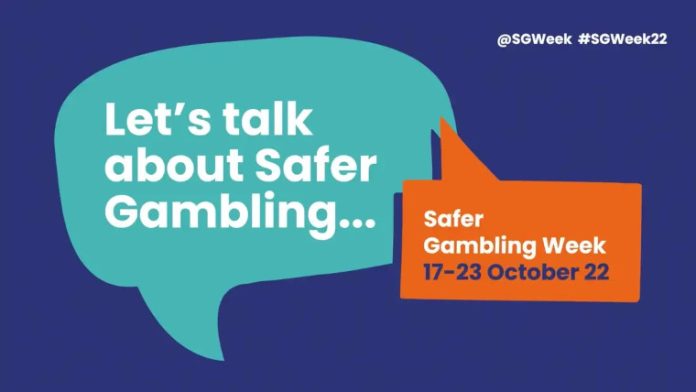With the increase in the availability of online gambling options in recent years, the gambling realm is currently under scrutiny by concerned groups like never before. The UK Government has already taken significant steps in their quest to keep the UK public safe from unhelpful gambling practices, such as banning the use of credit cards at all UK-licensed betting sites, and issuing significant fines to gambling companies that have found to not be doing enough to help their customers avoid harmful levels of gambling.
This page will take a look at responsible gambling, explaining what it is, how measures are being introduced to heighten the awareness of responsible gambling, what the UK government is doing to dictate to UK gambling companies how they can prevent their users from forming bad gambling practices, and our own responsibilities towards the concept of responsible gambling as a whole.
What is Responsible Gambling?
Responsible gambling refers to a set of principles and safe practices that are aimed at promoting a secure and balanced approach to all forms of gambling, including betting, casino play, lotteries, scratch cards, poker and bingo. It emphasises the importance of enjoying gambling as form of entertainment as opposed to a scheme aimed at generating a sudden or steady stream of income. It also stresses the importance of maintaining control over one’s own gambling habits, and to recognise habits that are harmful, such as spending too much time or money gambling, or gambling for no other reason than to gamble.
At its core, responsible gambling is aimed at encouraging individuals to maintain control over their own actions and to take responsibility for their own gambling practices. Such control involves the understanding of odds and probabilities and the actual chances of winning money, how to set limits on the amount of time and money that is spent gambling, and a understanding how a lapse on control can have a major effect on an individual’s life, in terms of mental health, relationships with friends and family, and overall financial well-being.
Furthermore, responsible gambling extends beyond individual responsibility. It involves the active involvement of gambling operators, governments, and society as a whole. Companies that provide gambling opportunities are both legally and morally obliged to promote responsible gambling, and to take measures to protect site users, such as age verification checks and the monitoring of customer accounts to detect excessive losses.
The UK Government plays a vital role in regulating the gambling industry, with the United Kingdom Gambling Commission ensuring that gambling companies comply with responsible gambling standards and providing funding for prevention and treatment programs. Society, on the other hand, plays a part in reducing the stigma associated with gambling addiction and providing support to individuals who may be struggling.
By embracing responsible gambling principles, individuals can enjoy the entertainment value of gambling while minimising the potential harms. It promotes a balanced approach that fosters healthy gambling habits and safeguards the well-being of individuals and communities alike.
Why We Promote it
Here at SportsLens we have the responsibility of promoting responsible gambling because of the nature of what we do. We provide detailed information about gambling, where gambling can be performed, and how to get the most out of the pastime of gambling online. It is therefore our duty and moral obligation to actively insist that all people who encounter our site act upon the advice we provide and do so in a responsible way.
With our promotion of online gambling, we aim to foster a healthy gambling environment for all our site users. We do so as it encourages people to view gambling as a form of entertainment, and not as a guaranteed source of income. By fostering this idea, we aim to encourage the notion that once an individual ceases to find that gambling is a source of entertainment, it will help them to cease gambling, and that if they find it hard to quit, to recognise the likelihood that their gambling has become problematic and that they should seek help.
What are the Organisations or Bodies that are Licensed?
There are plenty of organisations that can help you if you feel you have a gambling problem, or you want to help someone whom you feel may have a gambling problem.
GamCare can offer practical help, advice and support and on a confidential and anonymous basis. It offers Gamban, which is a free app that blocks gambling sites and apps on your devices, and GamStop where you can apply to be self-excluded from all sites that offer any kind of gambling activity. You can contact their National Gambling Helpline at any time on 0808 8020 133.
Gamblers Anonymous is another important resource for people who are facing gambling issues. Unlike GamCare though, problem gamblers are encouraged to seek help face-to-face in order to eradicate the feeling that problem gambling is something that needs to be tackled alone. It also offers confidential services though, and can be contacted online or on 0330 094 0322.
GamAnon UK is another group aimed at helping problem gamblers on a face-to-face basis, but also offers regular group meetings that are conducted via Zoom. If you have recovered from gambling issues yourself and want to help others who find themselves in the situation that you found yourself in, then you can apply to set up your own meetings. You can get in contact with GamAnon UK online at [email protected].
The NHS runs a number of services for those struggling with gambling issues. You can first talk about your gambling issues with your GP, who then may refer you to the most appropriate services. Alternatively you can make your own arrangements by contacting 0300 300 1490 or online here.
What to do if you have a Gambling Problem
If you feel or have been told that you have a gambling problem, then you need to seek help. Below is a step-by-step list of the actions it would be appropriate for you to take:
- Acknowledge that you have a problem: This is the first, and probably the most important step. As with all forms of addiction, gambling has become part of your normal daily practices. Habits can be hard to break, and denial is always the strongest tool to prevent you from breaking free of harmful habits. However, it is very unlikely that you do not have a gambling problem if you have been told that you have. If you do not acknowledge your problem, it will only get worse, and it will not solve itself.
- Reach out for help: Your first step is to reach out to those closest to you. Tell them that you are struggling and that you are taking the steps to recovery. Even if they are not able to offer practical advice, they will be able to support and encourage you on your recovery journey.
- Get professional help: Breaking free of addiction can be difficult if done on your own. Even with the best intentions of those close to you, recovery can be a tough path to venture down. This is why it is perhaps best to seek help from organisations that are the most qualified to provide it, such as those listed above.
- Self exclude: Take practical steps to limit your gambling. Contact the sites you most frequently use and tell them you wish to self exclude – they are legally obliged to allow you to. Install software on your devices that will prevent you from accessing gambling sites. Avoid people with whom you usually gamble, or talk about gambling with in the real world or via social networking sites.
- Set limits and manage finances: Establish strict limits on your gambling activities and create a budget to manage your finances effectively.
- Develop healthy coping strategies: Identify alternative activities and hobbies that can replace gambling and help you cope with stress or emotional triggers.
- Use all available resources: Do not be afraid to use helplines, forums or local organisations that deal with all forms of gambling and addiction. Don’t consider yourself ‘a burden’ – you are why such organisations exist, and they genuinely want to help you.
Overcoming gambling addiction can be tough, but to give yourself the best chance of succeeding you should never attempt to ‘go it alone’. Instead, use the specific resources that are available to you. Several high-profile figures such ex-England footballer Paul Merson and stand-up comic, quizzing expert and ‘TV Chaser’ Paul Sinha have beaten their gambling addiction, and there is absolutely no reason why you cannot too.
What are the Measures that are being Discussed in Society/Government
The UK Government has done a great deal to combat problematic gambling over the past decade or so, including the establishment of the United Kingdom Gambling Commission in 2007. Measures taken include the banning of the use of credit cards and reversing withdrawals at UKGC-licensed gambling sites, and the requirement of stringent verification checks for customers and the necessity to facilitate and maintain self-exclusion strategies.
Late in 2020 the Department for Culture, Media and Sports commenced a detailed review of the regulations surrounding all forms of gambling in the UK. This review was finally concluded two years later, with its findings published in April 2023. Among the proposals put forward were the following:
- All gambling companies over a specific threshold in terms of revenue will be legally obliged to donate a minimum of one percent of its profits towards public health initiatives.
- The maximum stake for all online casino games set to £15 for gamblers aged 25 and over, and £2 to those aged under 25.
- Any individual losing over £125 per day on a regular basis over 30 days with be checked for county court judgements against them, as well as their current bankruptcy status
- Any individual losing over £1,000 in single day (or £2,000 over 90 days) will be checked for their overall financial well-being, including a review over their sources of income
- Deposits limits at online gambling sites to become mandatory, as opposed to advisory
- Stricter controls on companies that act as ‘white label’ software and licensing providers
- Regulations for large-scale ‘prize draws’, which currently do not come under the UKGC’s responsibility
- Tougher restrictions on bonus promotion, advertising and customer marketing contact.
The Current Responsible Gambling Measures Being Used by Casinos
Not only are casinos forced to provide protections to help prevent gambling problem by the UKGC, many do so on a voluntary basis as well. There are plenty of measures put in place by licensed online casinos in the UK, and we will take you through all of the most common ones.
Responsible gambling section
Nearly all sites will provide a responsible gambling section, or some part of their website that will contain important information about how to gamble safely, and responsibly. While these sections are excellent at the biggest online gambling sites in the UK, at smaller sites similar sections serve little more than a box-ticking exercise.
Deposit & time limits
Most sites will now allow you to set deposit limits, fixing the amount of money you can deposit in one day, week or month. Currently such limits are voluntary, but it is likely in the near future that they will become mandatory. You can also set time limits on the periods you are able to use the site, with set reminders of how long you have been playing. At some sites polite reminders pop up even if you have not set limits.
Account monitoring
All UK-licensed gambling sites have the ability to monitor your account in terms of money spent, money lost and deposits and withdrawals made. This is to protect themselves as much as it is to protect their site users. Suspicious activity, such as a continual stream of deposits and withdrawals with not much actual site use, can be a sign of money laundering.
Many sites have fallen foul to UKGC fines because they have failed to take the necessary steps to protect customers and prevent suspicious activity. The record UKGC fine currently stands at £17 million, handed out to Entain, the company behind Ladbrokes, Coral and Foxy Bingo. Among the failings pointed out by UKGC were a failure to interact with potential problem gamblers (one customer was only contacted once, despite depositing almost £250,000 at the site over 18 months), allowing large deposits (up to £750,000 from one customer alone) to go unchallenged, and allowing customers who had been banned from opening an account at one element of Entain (Coral) to open accounts elsewhere (Ladbrokes).
Time out and self-exclusion
Another common gambling protection scheme operated by online sites is self-exclusion. If you opt for self-exclusion, your account at the site you are self-excluding from will suspend your account for the requested period. You can self-exclude permanently if you wish. Permanent self-exclusion is genuinely permanent – sites cannot, legally, re-open your account if you change your mind.
Sites will take all the information you’ve provided as a basis for self-exclusion – name, address, proof of ID, phone numbers, bank account details and so on. If you attempt to open a new account with any of the same details, the site will block you from doing so.
One thing to note – if a company runs a number of sites then you will be self-excluded from ALL the sites that company runs. For example, if you self-exclude from Atlantic Spins which is a white label run by AG Communications, you will also be self-excluded from all sites that operate under AG Communications’ UKGC licence, including Karamba, Mr.Play, Bzeebet and so on. This is another legal requirement.
GAMSTOP
The most drastic and therefore the most secure step you can take if you are experiencing problems with your gambling, is to apply to GAMSTOP. When you open an account at GAMSTOP you will be encouraged to offer as much personal identification information about yourself as you can – addresses, email addresses, phone numbers and so on.
Once your account has been opened and your identity ratified, you can then request to self-exclude for six months, one year, or five years. You will then be prevented from opening an account at practically any UKGC-licensed gambling site, and all your existing accounts will be frozen.
You cannot request to have your GAMSTOP self-exclusion period lifted during the time you have self-excluded for. In addition, once your self-exclusion period is over, your GAMSTOP ‘ban’ remains in place until you contact GAMSTOP to have it lifted, effectively giving you the opportunity to self-exclude from online gambling in the UK indefinitely.
Note that GAMSTOP only applies to online sites, and not real-world bookmakers.
The Current Responsible Gambling Measures Being Used by UK Sport
It’s unlikely that the world of sport in the UK would be where it is today without the financial input from betting companies – indeed betting companies have replaced tobacco companies as the leading sponsor of sports since the tobacco advertising ban came into force in 2002. The list of EPL sides sponsored by betting sites in the UK in the 2022-23 season was as follows:
- Bournemouth – Dafabet (since 2022)
- Brentford – Hollywood Bets (since 2021)
- Everton – Stake.com (since 2022)
- Fulham – W88 (since 2022)
- Leeds United – SBOTOP (since 2020)
- Newcastle United – Fun88 (since 2017)
- Southampton – Sportsbet.io (since 2020)
- West Ham – Betway (since 2015)
Additionally, in the Football League Birmingham City (BoyleSports), Coventry City (BoyleSports), Middlebrough (Unibet), Stoke (Bet365), Sunderland (SpreadEx) and Watford (Stake.com) were all sponsored by betting companies for 2022-23.
Many of the leading sporting competitions in the UK are sponsored by betting companies too. The Football League has been sponsored by Sky Bet since 2016. The World Snooker Championship has been sponsored by 888, Betfred, Betfair and Dafabet. The majority of horse races in the UK are sponsored by betting companies too.
This proliferation of betting companies in the world of sport sponsorship leads to the question being asked, what is sports doing to promote responsible gambling? The answer seems to be ‘probably not enough’.
A few football clubs (Middlesbrough, Luton Town and West Ham) have taken steps to promote GAMSTOP, but that’s about it. The cynical might suggest that the close ties between sport and betting companies may dissuade clubs and organisations to seriously promote something that would lessen the income available to both companies and sport.
In April 2023 all clubs competing in the EPL decided to ban the names of betting companies appearing on the front of club shirts, effective from the 2026-27 season onwards. Despite this ban, betting company names and advertising material would remain permissible on shirt sleeves and all other items. Big Step – a campaign group set up to lobby for the snipping of the close ties connecting football and betting – welcomed this as ‘significant’ but said that more needed to be done, which is a statement that has very little to be disagreed with.
The Current Responsible Gambling Measures Being Used by Retail
The retail world sowed the seeds of online gambling when retail betting shops were first allowed by law in 1961. Many familiar online names such as Ladbrokes, William Hill, Coral and Betfred all began life in the betting shop arena. By the end of the 1960s there were 10,000 betting shops in the UK and this number rose to a record high of 15,000 in the 1970s but by 2022 that number had fallen to just over 6,000. Despite this fall the retail sector still has an important role to play with regards to responsible gambling, so how seriously is it taking this role?
One initiative that is promoted is ‘Safer Gambling Week’ which takes place in October each year. It aims to encourage a more open acknowledgement of problem gambling and to promote information about the tools available to those who are struggling with their use of retail betting shops and online gambling sites. It also provides links to the National Gambling Helpline.
Other initiatives mirror those of online betting sites. For example you cannot use a credit card in a Paddy Power betting shop, and you can also self-exclude at betting shops just as you can online, although not via the same tools. The self-exclusion system at betting shops is called MOSES (Multi-Operator Self-Exclusion Theme) and is operated by an agreement between all the leading high street names in terms of real world retail betting shops as opposed to the UKGC.
Despite the ‘betting counter’ aspect of betting shops, many shops only now accept bets via digital terminals. This makes customer behaviour easier to track and deal with, especially if a customer has self-excluded online and then attempts to pay for a bet using a card they’ve used online previously.
Naturally, the country also has a selection of independent bookmakers too, although that number has dropped drastically in recent years. It is hard to find exact figures, but the number of independent bookmakers dropped below 1,000 for the first time in 2019 and by 2023 it’s likely to be considerably lower. With such businesses struggling to survive in the shadow of betting behemoths and online betting, it seems unlikely they’ll want anything to do with measures that encourage people to bet less, which is a concern.
Of course it’s impossible to talk about betting shops without mentioning the spectre of Fixed Odds Betting Terminals. Basically online casinos ‘in disguise’, these machines have been significantly demonised by the UK media and anti-gambling lobby groups, with dozens of stories about people who have lost considerable amounts of money using them (such as Terry White who once lost £41,000 in a single day and £250,000 over two years). The UK government finally took the decision to reduce the maximum stake for FOBTs from £100 to just £2 in 2019, rendering them as ‘thrilling’ as the type of slots found in seaside arcades.
As a result of this reduction, the betting industry endured significant losses – William Hill reported they would have made a £51 million profit in 2019 if not for FOBT curbs, and instead posted a £63.5 loss. This should have proven a valuable lesson for the UK government – if you reduce the amount of money that people can legally bet with, you reduce gambling as a whole and – presumably – problem gambling too.
What are the Future Measures Being Discussed?
People will always gamble. Despite all the measures taken to encourage people to quit smoking, with cigarette packets behind hidden behind secret panels at retailers and pictures of diseased lungs adorning their covers, over 13 percent of the UK population still smoke. When it comes to self-harm, a percentage of the UK population are their own worst enemies.
We’ve already outlined a number of measures recommended by the Gambling Act Review White Paper in 2023, and the UKGC has announced that all recommendations will eventually be implemented but that implementation will not happen overnight.
In the meantime, it remains to be seen how these recommendations will help people to gamble responsibly. If they are deemed to be insufficient, then undoubtedly other changes will follow. The Gambling Act Review Board mentioned gambling curbs that exist in other jurisdictions:
- In Spain, sign up bonuses are set to a maximum of €100 and can only be offered to customers who have had an account for a minimum of one month and whom have made a minimum of three deposits at the site
- In Sweden only one bonus can be claimed per customer, capped at SEK100 (around £8)
- In Denmark bonuses are capped at DKK1,000 (approximately £113), must be available for a minimum of 60 days with maximum wagering requirements of 10x. In addition, bonus offers cannot be extended to dormant customers, and must be available to a minimum of 100 customers (to discourage the use of VIP schemes).
There are even stricter curbs in other jurisdictions – all forms of gambling advertising are banned in Australia, for example. In Germany live casinos and progressive jackpot slots such as Mega Moolah are banned, as is in-play betting.
All these could be moves could be sounded out by the UK Government should the latest set of measures not encourage people to gamble in more responsible fashion. Those fearful of gambling and betting being banned altogether in the UK as it is in dozens of countries globally need to allay such fears though – in 2023 gambling generated £3,303 million in revenue for the UK Government, and that’s money that those in charge of us are unlikely to willing to give up.
Recommend Resources
United Kingdom Gambling Commission
GamCare – 0808 8020 133
The National Centre for Behavioural Addictions










